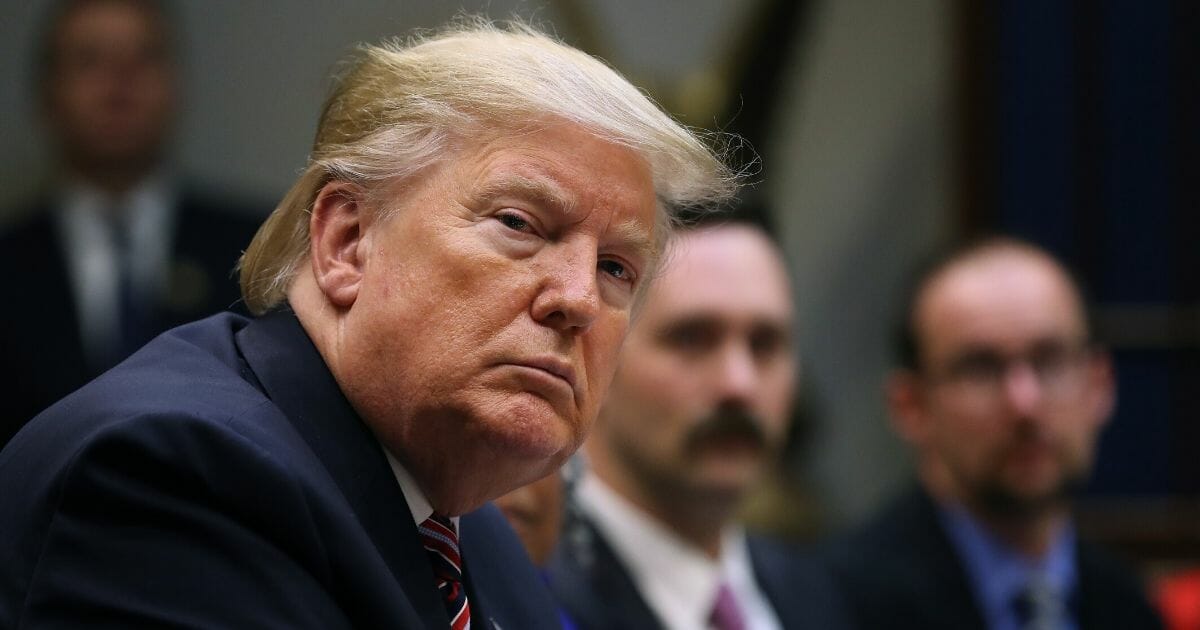
IG Report Finds FBI Team Used Info with 'Significant Inaccuracies' To Get OK To Spy on Trump Campaign
The long-awaited report released Monday by Justice Department Inspector General Michael Horowitz includes the conclusion that FBI attorneys submitted incomplete or inaccurate information on documents that affected court approval for surveillance of Donald Trump’s 2016 presidential campaign.
In particular, the report noted, the first campaign-related warrant application to the special court established by the Foreign Intelligence Surveillance Act was riddled with assertions that were “inaccurate, incomplete, or unsupported by appropriate documentation, based upon information the FBI had in its possession at the time the application was filed.”
That bad or incomplete information was included in the first documents filed with the FISA court in October 2016, then included in subsequent applications without being corrected, according to the more than 400-page report.
The warrants were being sought for surveillance on Trump campaign adviser Carter Page — who was painted as being a Russian agent but to this day never been charged with any wrongdoing.
As the report put it, the first application contained “significant inaccuracies and omissions” including:
The omission that Page had previously provided information to the U.S. government about his contacts with Russian agents and had been an “operational contact” for another U.S. government agency from 2008 to 2013.
An overstatement of the importance — and reliability — of information from former British intelligence agent Christopher Steele, compiler of the notorious Steele dossier.
The omission of information that undermined the reliability of one of Steele’s sources.
An assertion that the FBI knew Steele was not the source of a Yahoo News about the investigation. (It turned out, he was.)
An omission that Page had told the FBI he’d never spoken to one-time Trump campaign chairman Paul Manafort (and therefore could not have been a contact between Manafort and the Russian government).
The omission that Trump campaign aide George Papadopoulos had been recorded telling an FBI operative that the Trump campaign had no contacts with the Russian government.
The inclusion of incriminating statements from Page to an FBI operative that supported its claim that Page was a Russian agent, but the exclusion of statements that indicated otherwise.
In other words, the FBI was deliberately cherry-picking the information it was presenting to a court that was entitled to expect it was being dealt with honestly.
“Our review found that FBI personnel fell far short of the requirement in FBI policy that they ensure that all factual statements in a FISA application are ‘scrupulously accurate,'” the report stated.
As a result, the court approved the surveillance warrant on Page, based in large part on information from Steele and his dossier, a collection of stories that have either been proven to be false or have been unsubstantiated.
Most who have followed the story remember the most salacious element of the Steele dossier — that Trump consorted with prostitutes while in Moscow. There has never been a shred of evidence to back that up.
But the dossier also included less lurid tales, like the alleged fact that former Trump attorney Michael Cohen had visited Prague to meet with Russian agents (he didn’t), and that the Trump campaign paid for the work of Russian hackers through a Russian consulate in Miami. (Russia doesn’t have a consulate in Miami, for starters, and no proof of the campaign’s involvement in any Russian hacking campaign has ever emerged.)
In a July 2018 deposition, in fact, Steele admitted that much of the material in his “dossier” was actually based on nothing more than rumors (some from an internet site run by CNN that simply regurgitated stories circulating on the world wide web without any editorial vetting of any kind).
The Steele report, a major part of the FBI’s justification for seeking court approval for its surveillance of the Trump campaign, has been thoroughly debunked. The fact that it was funded by the Democratic National Committee and the Hillary Clinton presidential campaign as opposition research was never revealed to the FISA court judges.
Now, it turns out that, according to the Horowitz report, the FBI “fell far short” in its obligations to the FISA court to get a warrant for that surveillance.
While Democrats try to conjure up charges that can somehow justify removing a duly elected American president from office, the Horowitz report is casting new, damning doubt on the very foundations of the inquiry that brought Washington to where it is today.
Truth and Accuracy
We are committed to truth and accuracy in all of our journalism. Read our editorial standards.
Advertise with The Western Journal and reach millions of highly engaged readers, while supporting our work. Advertise Today.












